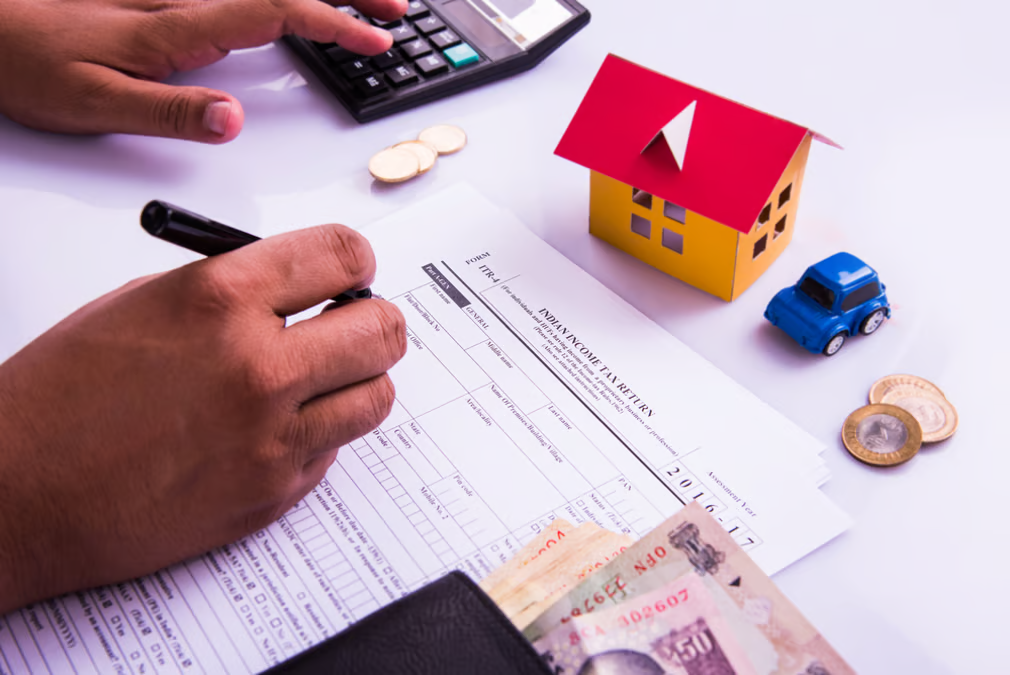Table of Content
▲
Purchasing a house in India during your 40s has the potential to be a beneficial investment for your future as long as you carefully assess all key factors and plan effectively.
When they reach their forties, numerous individuals desire to buy a house. During this age range, individuals generally have a more solidified professional path, potentially earning more money and saving more than in their 20s or 30s. Having a better understanding of your long-term goals and desired qualities in a home will be beneficial as you grow older. Improving the building's design, being in a nice area, and having nice amenities that used to not be as crucial can also be made a top priority.
Buying a home in India at the age of 40 typically requires taking out a home loan. It is important to take into account multiple factors. First, assess your financial security. Make sure you have a stable source of income to cover the monthly loan payments as well as other costs. Next, check your credit rating.
Having a high credit score enhances the likelihood of getting approved for a loan and receiving favorable interest rates. Thirdly, make sure to fully comprehend the loan terms, which include interest rates, duration, and any hidden expenses. Consider potential changes in interest rates and make a smart decision between fixed or variable rates. Furthermore, take into account the location and the potential for property value appreciation to secure a wise investment. Finally, make sure to have a backup plan in place for any unforeseen financial difficulties. Make sure to prioritize a comfortable equal monthly installment (EMI) to avoid putting pressure on your finances. Monga noted that by considering these aspects, you can smoothly navigate the process of buying a home and enjoy your new home without stress.
There are advantages and considerations to take into account when buying a house in your 40s. The following are key points to remember.
Also Read: Home Loan Interest Rates - May 2024
Assess your financial security
Assess your earnings and funds. Make sure to establish a strong financial base by maintaining a clear understanding of your earnings, liabilities, and savings for unexpected expenses. Strive for a higher initial payment (preferably 20% or above) to diminish the loan size and decrease your Equated Monthly Installments (EMI). This is especially important because your age might result in a shorter loan term. Consider future expenses such as your children's education or retirement savings when deciding how much you can afford to pay for a house.
Assess your loan requirement
Opting for a longer term reduces your monthly EMI payments but results in paying more total interest in the end. Aim to find a middle ground between being affordable and paying off completely before reaching retirement. Make a comparison between different lenders in order to secure the best rates available. Having a high credit score can improve the interest rates you receive. Think about government programs or lenders that focus on offering loans specifically for older applicants, as they might offer unique advantages. Please rephrase the text to make it easier to understand while using the same language and keeping the word count the same.

Life stage and needs
Evaluate if the house satisfies your immediate and future needs. Do you plan on growing your family or downsizing in the future? Verify the proximity of your family, workplace, educational institutions, and other amenities. Think about possible future developments in the field. Stand-alone residences require additional upkeep but offer increased seclusion. Especially if you think you might move again later on, apartments could be simpler to handle.
Also Read: How To Reduce Home Loan Interest Rate In 2024?
Added considerations
Safe and informed property acquisition requires key factors to be taken into account. Engage a lawyer to verify the title of the property and establish a solid ownership history, which can help prevent potential issues in the future. Additionally, obtain an encumbrance certificate from the local government office. This paper shows any money the property owner still owes, like home loans, legal claims, or overdue taxes.
Create a budget for future renovations and devise suitable plans. Take into consideration unexpected costs such as potential renovations, electrical updates, or plumbing maintenance. Investigate the fees for upkeep that are required by the homeowner association or community. These charges have the potential to greatly increase your monthly costs and support the maintenance, security, and improvement of shared spaces. Discover the existing property tax rates in the area. Additionally, one yearly cost that you need to factor into your budget is property taxes.
While the main reason for purchasing a house is for your own use, it is important to consider the future resale value of the property as well. Examine the patterns of growth and the speed at which properties are appreciating in the region. If you want to rent the house later on, think about things like how many people want to rent in that area, how much money you could make from renting, and any rules in the neighborhood about renting.
Purchasing a home is a major life choice that requires thorough consideration. If you do careful research, understand the money side, and get help from experts when needed, you can confidently decide to buy your dream home.
Also Read: Applying for a home loan - Online vs Offline: Which One Is Better?



_1772441702.webp)


Ans 1. Is 40 the right age to buy a house? There is no set "right" age to buy a house, as it depends on personal circumstances and financial stability. However, individuals in their 40s may need to consider retirement planning, financial stability, and long-term goals before committing to a purchase.
Ans 2. The bottom line: “You could obtain a new 30-year mortgage at 110 years old,” Harn says. There should be no issues with senior homebuyers landing a mortgage “as long as your income supports the monthly payment,” she says.
Ans 3. While there's no “right” age, there are trade-offs between buying when you're a young adult and waiting until you're older. Why buy a home earlier in life? If you can swing it, homeownership in your twenties or thirties brings many advantages.
Ans 4. Ideal Age for Buying a House Based on these factors, the ideal age range for buying a house in India generally falls between 30 and 40 years. This range balances financial stability, career establishment, and personal readiness.
Ans 5. Buying a house typically involves a 30–40 year mortgage. Starting at an age of 25 will make you debt free by 55–65, just in time to enjoy it during retirement.
Ans 6. Building's Age: It is advisable that the house you buy should not be above five years old or within ten years. A property older than ten years is not a good deal to invest on.
Ans 7. According to structural engineers, the lifespan of any concrete structure ranges from 75 to 100 years. There are various factors, which may alter this age range. For example, the life of an apartment is 50-60 years while independent homes have a higher lifespan
Ans 8. Buying At An Early Stage ( 25 - 30 ) However, if one can postpone the decision and save more money for the down payment, the percentage of a loan at a later stage can be reduced. "The goal is to keep the loan amount as low as possible," says Ayush Bhargava, CEO of Bhargava Financial Planners.